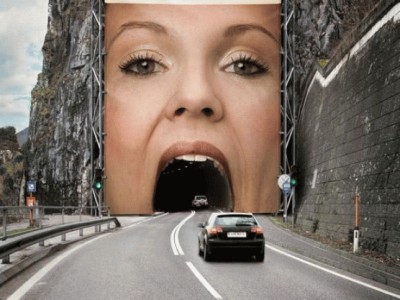What is viral marketing?
Viral marketing is a type of marketing that can convey the potential sales benefits of a brand or a product through messages that spread like a virus. In other words, this work is done quickly and through one person to another person. In fact, in this type of marketing, users themselves choose to share content or information about a business.
Social networks are the natural habitat of this type of marketing due to the ease and speed of sharing. Animated, interesting, surprising and spectacular videos on YouTube are among the examples of this type of marketing, which are quickly shared on Facebook, Twitter and other social networks.
Virality and ease of subscription act as a double-edged sword in this type of marketing. Because we must not forget that in viral marketing, a large part of the control is in the hands of the users, and we are actually taking risks regarding the error messages that are published by them and the erroneous interpretations that the users may have of it. But on the other hand, a successful viral campaign and strong viral marketing can have miraculous results for your brand.
What is a viral marketing strategy?
Viral marketing is an operational strategy for any business that uses existing public platforms and social networks to promote a product. As the name of viral marketing strategy suggests, its concept refers to how to spread information about a product to other people on social media. In exactly the same way that the virus spreads from one person to another; This publishing and engaging the audience should be in such a way that the desired message and content can be reproduced quickly and have a high impact on the consumer's behavior.
The basis of the work of the viral marketing strategy is broadly summarized in the spread of information, and by using the methods related to word-of-mouth marketing, one can take steps towards the success and achievement of viral marketing goals (see word-of-mouth marketing), as well as modern technologies. Based on the Internet, it has allowed companies to experience viral marketing in many online platforms and multiply their power of maneuver in cyberspace.
Viral marketing is usually better to offer something for free to your audience to increase the engagement and connection of the audience with the campaign goals. This can be done in such a way that the audience can easily download a song or a free book, or engage in a fun game, or you can engage the audience by participating in a very attractive live online contest. If the content is created in a way that encourages people to share the content with others, it can be expected that the message will be more viral and more people will receive the message of the content.
Viral marketing can be developed in different networks, including the following:
- By word of mouth
- By email or e-mail
- Websites related to social networks (Facebook, Instagram, Twitter, LinkedIn, Telegram, etc.)
- Video sharing sites (YouTube, Vimeo, Aparat, Namasha, etc.)
Online forums
Important elements of viral marketing
The virality of a message can be accidental or intentional; It means that users spontaneously make it viral or that the publisher produces content with prior planning in such a way that he is sure of its virality. Regardless of what makes a piece of content go viral, there are three key elements to any viral marketing strategy, and if one of them is missing, the viral marketing campaign will not work:
Message
The message may contain any content related to a brand. For example, it can be a video, an image, a podcast, a meme, a gif, or anything shareable.
Messenger
Anyone who sees and shares a message is a messenger. A messenger can be an actual or potential customer or even someone who is not your target audience.
Environment
The environment includes all agents in or through which the message is shared. The environment can be social media platforms, consumers, potential customers, expectations, attitudes, etc.
Types of viral marketing
- Value virus
- Hoax virus
- Critical virus
- Spiral virus
- Nasty virus
A value virus is spread when a person wants to share his experience of buying a quality product with others. If the customer has a good and unique experience, he will tell others about it. This is called value viral marketing. On the contrary, if a customer has a bad experience, which is called negative word of mouth advertising, he will pass it on to others. This is called inconvenient viral marketing. It is much more likely that an unhappy customer will start posting about their experience than a satisfied customer will start posting about their experience, so try to keep the customers happy.
Viral marketing is a scam when a customer recommends a product to another person in order to receive a reward. Sometimes, viral marketing happens for this reason, so that the next customer also shares his experiences with the first person, and this virus is vital. Finally, in Spiral Virus, people want to share their happy experiences with others.
Advantages of viral marketing
Among the most important advantages of viral marketing, the following can be mentioned:
- Low cost: what differentiates viral campaigns from other marketing methods What makes it so is that in viral marketing, it is the users who do most of the work for us, which reduces or even almost eliminates the costs of content distribution and advertising. In this case, there is no need to buy ads or space on social media.
- Reach potential: A video that goes viral on the Internet has the potential to reach a large group of our target audience without any effort or expense. Because of this, small businesses or even a single person can travel a hundred years overnight with the help of viral marketing.
- Not forced and aggressive: Force and pressure have no place in viral marketing. In fact, in this type of marketing, the decision to participate and share the message is always entirely up to the user, and therefore, it never feels like pressure or coercion. For this reason, the perception and feeling towards the brand and the interaction created is much better, more positive and more pleasant compared to traditional advertising methods.
- Viral marketing helps grow your brand: If we really hit the target in terms of creativity and innovation, we will produce content that is so interesting that users will eagerly share it. This action makes the audience have a close relationship with the relevant brand and take on the role of brand ambassador. Therefore, viral marketing can be a very powerful tool for branding and increasing brand awareness.
Viral marketing problems
Distraction factor: In marketing, there is a factor called the distraction factor, which is a limiting factor for using the viral marketing method. If you, as a marketer, decide to use e-mail to drive traffic to your site, for example, you have to compete with a large volume of e-mails.
A threat to personal relationships: If you do poorly in this type of marketing, it may cause problems for your position in a big way.
Business address control: If the company does not have control and supervision over its name and brand. It makes the company not know who is going to communicate in the future. This causes many messages to be sent to people other than the target audience and is ineffective.
Lack of measurement criteria: You should know that the company does not always have the possibility to track the person who receives the emails and the action he takes. For this reason, it is not possible to identify people who use the company's services and have chosen them through viral marketing techniques.
Chart or growth without a chart: Viral marketing can lead to unpredictable growth paths. However, it is not possible to determine whether the company expected such growth or not, and whether or not this growth was the company's goal at all.
No guarantee of increased sales: A viral marketing activity needs to focus on branding if it wants to be successful and generate more sales and profits. Not that it aims to sell. A successful viral marketing campaign is not guaranteed to increase sales of your product.





